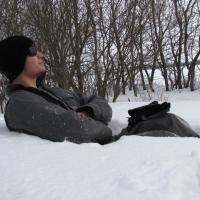Esperanto estas seeping into my Japanese.
de Aubright, 2 februarie 2013
Contribuții/Mesaje: 30
Limbă: English
scorpjke (Arată profil) 5 februarie 2013, 23:22:21
Aubright:As things stand now it is no longer wa and estas that I am mixing up, but ĉi tio and この(kono). Contemptible tongue of mine!!Haha
 But again, "ĉi tio" and "この" are not the same... "ĉi tiu" and "この" are the same, and so are "ĉi tio" and "これ".
But again, "ĉi tio" and "この" are not the same... "ĉi tiu" and "この" are the same, and so are "ĉi tio" and "これ". がんばって\(^o^)/ 全然違う言語なのに、なんでミックスしちゃうんだろうね~
Aubright (Arată profil) 5 februarie 2013, 23:55:05
頑張っていますよ!だけど、この僕はエスペラント語を話すのは苦手なんです。まあ、もっと勉強した方が良いかもね? (Hope that sentence is mostly intelligible. Been a while since I've used much japanese :/)
scorpjke (Arată profil) 6 februarie 2013, 00:01:58
Aubright:I see I see. Well luckily it's just my complete inexperience with Esperanto that seems to be the problem here. Oh well nothing to do but study more.Esperanto's easy, no? xD Like 300 times easier than Japanese. Oh well, as you have mentioned, there is no choice but to study more~
頑張っていますよ!だけど、この僕はエスペラント語を話すのは苦手なんです。まあ、もっと勉強した方が良いかもね? (Hope that sentence is mostly intelligible. Been a while since I've used much japanese :/)
エスペラントは簡単じゃんw 日本語より300倍簡単だと思う^^ まあ、とにかくそうだね、勉強するしかない~
Aubright (Arată profil) 6 februarie 2013, 00:08:42
LJon (Arată profil) 9 februarie 2013, 23:15:34
Rugxdoma (Arată profil) 10 februarie 2013, 11:07:51
Another tricky thing: The personal pronoun "ni" denotes second person singular in Chinese, first person plural in Esperanto and second person plural in Swedish, while the same word is used for first person singular in Swahili. Some time ago in the Scandinavian forum the question was raised, if there could be found any small difference in pronounciation between the words "ni" of Esperanto and Swedish, which could be exaggerated in order to make the words more distinct. That would make it easier for people with Swedish background to speak (and listen to) Esperanto without mistakes.
LJon (Arată profil) 21 februarie 2013, 22:41:18
Another thing that confuses me is the use of pro and por in Esperanto being similar to por and para in Spanish, however the two pors don't go together. "Para ti" in Spanish is translated as "Por vi" in Esperanto, whereas "Por ti" is "Pro vi". This is going to get very confusing.
hercxjo (Arată profil) 16 iunie 2013, 12:27:17
evanamd (Arată profil) 17 iunie 2013, 03:12:01
darkweasel (Arată profil) 17 iunie 2013, 04:19:10
evanamd:this poemI was sleeping very well
in my quietsching Bettgestell
but in the middle of the Nacht
ist das Scheißding eingekracht.
I hope that dir that nie passiert
and that my English better wird.
SCNR
PS: On-topic, I once used méditer in a French exam in the Esperanto sense of mediti = "to think about".



